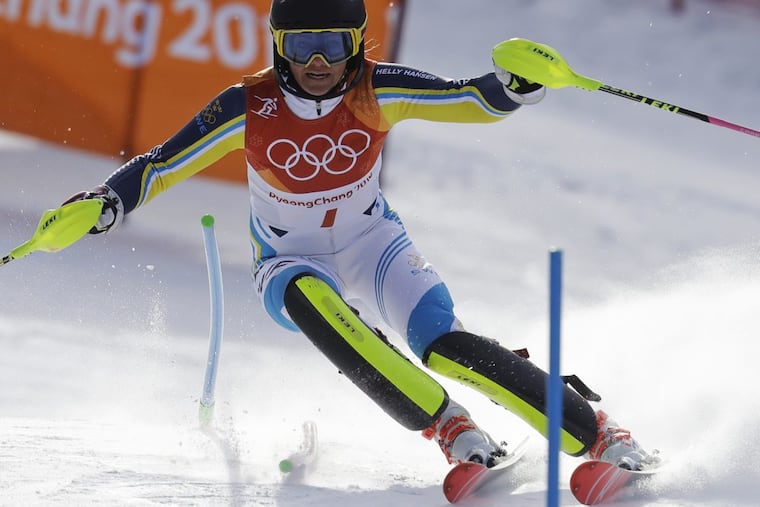Winter Olympics demonstrate why balance, flexibility are so important
Balance and flexibility are two components of physical fitness that are greatly under-appreciated, and thus are under-trained. After all, when was the last time you stood on one leg with your eyes closed and called it exercise?

During the preliminary rounds of the women's giant slalom at this year's Winter Olympics, I watched as one skier lost control. She hit a bump on the course, causing one ski to fly in the air, while the other stayed firmly planted on the ground.
I found myself in a similar position during a recent ski outing. My inability to adapt to a challenging terrain caused me to wipe out hard and as a licensed physical therapist, I couldn't help but note the similarities. While I certainly don't reside in the same class as an Olympian, our shared imperfections on the slopes were likely caused by similar weaknesses: The lack of necessary balance and flexibility.
Balance and flexibility are two components of physical fitness that are greatly under-appreciated, and thus are under-trained. After all, when was the last time you stood on one leg with your eyes closed and called it exercise?
Yet balance and flexibility make it possible to perform everyday movements that are both simple and complex. From navigating an icy parking lot to a flight of stairs, the coordination of these skills keep us upright, confident and safe.
These components also help to keep us injury free, especially when working in tandem. When we push our bodies on the slopes, in the field, on the running trail, we rely on balance and flexibility to help distribute pressure equally throughout our muscles and joints. When our weight is not distributed equally, however, other muscles and joints take on the brunt of the pressure, which can affect performance and lead to injury.
The good news: you can increase your balance and flexibility with just a few simple exercises. Below, I've provided some daily exercises for all fitness levels:
Glute Stretch: Lying on your back, bring your right knee toward your chest. With your left hand, grab your shin or lower leg bone and pull your leg across your body. Hold for 30 seconds. You should feel a stretch in your glute. Repeat on the opposite side.
Calf Stretch 1: Find a wall or countertop to lean against. Place one foot behind you, keeping the foot pointed straight ahead. Keep your back leg straight, with your heel on the ground. Lean your hips toward the wall/counter. Hold for 30 seconds. You should feel a stretch in the middle of your calf. Repeat on the opposite side.
Calf Stretch 2: Leaning against the same wall or countertop, place one foot behind you like the previous stretch, but not as far back. Keep the foot pointed straight ahead. As you lean your hips toward the wall/counter, allow your back leg knee to bend. Keep the heel on the ground. Hold for 30 seconds. You should feel a stretch in your lower calf or Achilles tendon. Repeat on the opposite side.
Single-Leg Stand: Find a wall or countertop to hold onto for safety, and simply stand on one leg. Make it your goal to hold this position for 30 seconds without needing to touch the wall for balance. Repeat on the opposite leg. Make this exercise harder by closing your eyes.
Of course, each individual has her or his own set of strengths and weaknesses, which physical therapists are trained to identify. For a customized exercise regimen, visit a licensed physical therapist.
Chris McKenzie PT, DPT, is the owner of McKenzie Sports Physical Therapy in East Falls. He is board certified specialist in sports and orthopedic physical therapy. He has also been an adjunct professor at Drexel University.